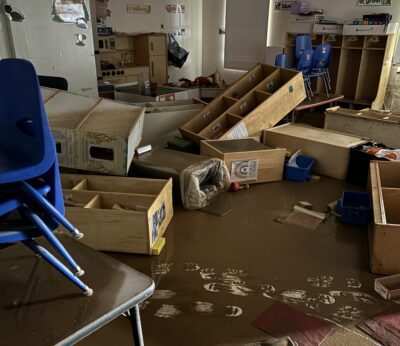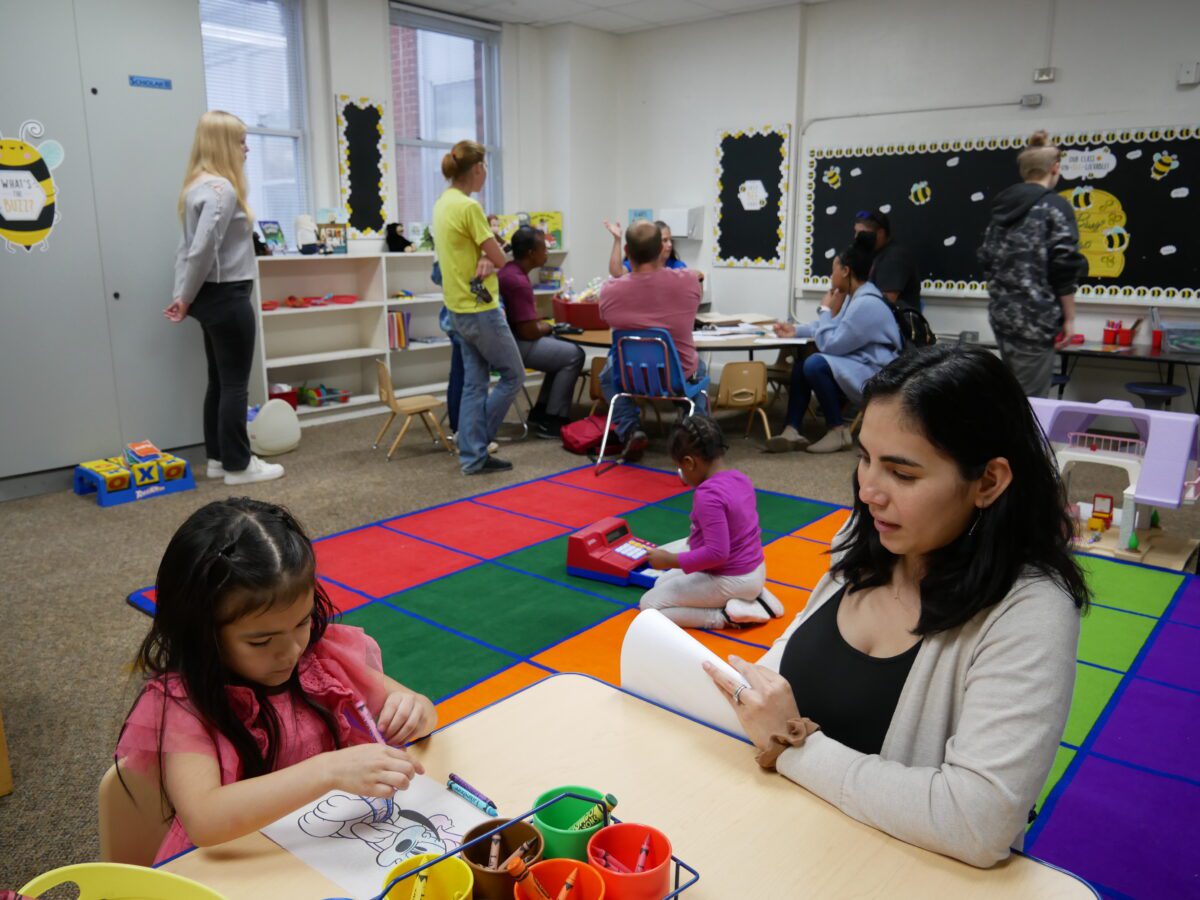
Hurricane Helene destroyed Burke County’s two largest child care centers, displacing about 250 children from their learning environments and impeding parents from working.
But in the three weeks since, Burke County Public Schools has provided space for eight classrooms from the two programs, reconnecting about 170 children with their teachers and families with their jobs — and giving the child care programs a lifeline.
“For Burke County Public Schools to give us a spot, that’s just a blessing,” said Stephanie Ashley, executive director of Blue Ridge Community Action, the nonprofit that runs Quaker Meadows Generations, a Head Start program and one of the two affected centers. “My biggest concern was getting the children back as soon as possible.”
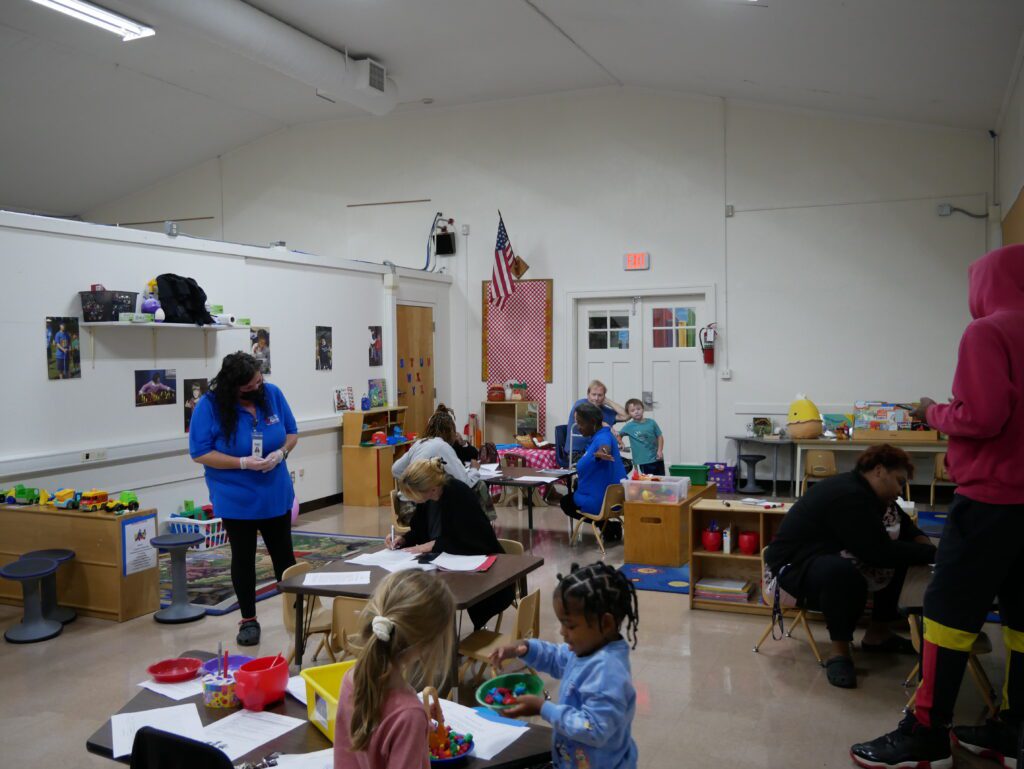
Five classrooms of 3- to 5-year olds from Quaker Meadows opened Thursday, October 17, at Salem Elementary School. Another three classrooms of preschoolers, from Creative Beginnings Day Care, a private center, were finishing their first full week at Oak Hill Elementary.
“I think it just speaks volumes of the community, the camaraderie, the kindness, the legacy that’s being built here,” said Jessica Powell, a teacher who has worked at Creative Beginnings for 17 years.
The two programs still have long roads ahead to recovery. In the meantime, they’re doing everything they can to take care of each other. And community partners, from schools to businesses to nonprofits, are stepping up to take care of them.
A relationship that made the difference
Local K-12 and early childhood leaders do not always have close relationships. In Burke County, they do.
“We’re like the same person,” said Jacquie Grady, Burke County Public Schools’ preschool and kindergarten transition coordinator. She was talking about Kathy Smith, executive director of Burke County Smart Start, a nonprofit dedicated to early childhood learning and development. The two have worked together closely for six years after hitting it off while carpooling to a training.
When the news of the two damaged centers reached them, Grady and Smith started moving in tandem.
“Because our relationship is so good, we had really a one-track mind, and it’s really just helping families find care,” Grady said.
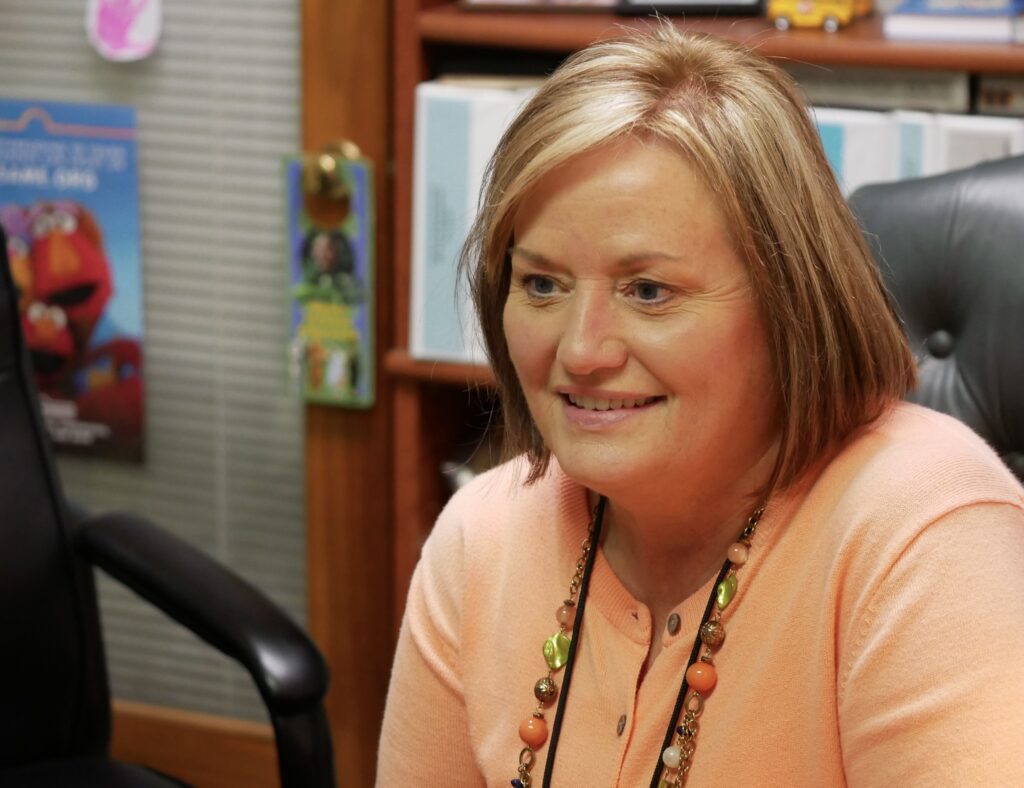
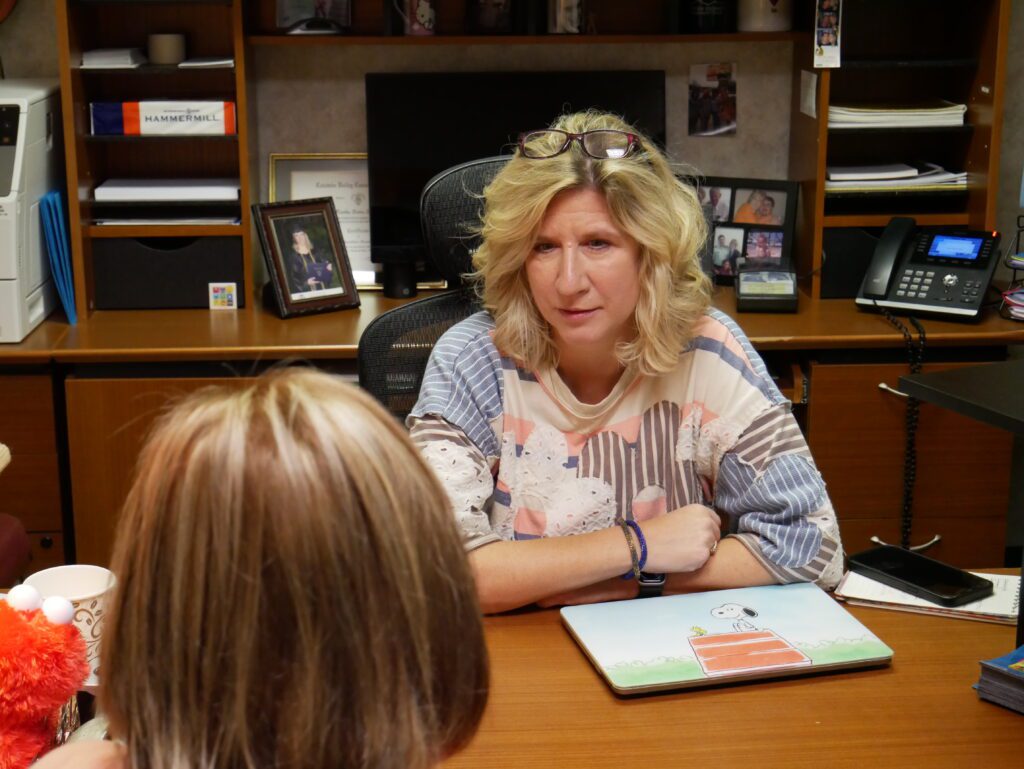
Grady saw the news during a district leadership meeting and immediately started asking how they could help. Smith contacted the child care program owners and directors, asking what their needs were.
Grady located empty classrooms. One of the largest elementary schools, Salem, had an auditorium that was previously used for multi-age learning and had space for three classrooms when split with dividers. There were also two empty classrooms beside the auditorium. At Oak Hill, there was one empty classroom, one room that was being used for storage, and one room used by a school therapist who agreed to move to the conference room temporarily.
Smith figured out licensing rules and requirements with a licensing consultant. The school setting meant that only children 3 years and older could be served due to the specific needs of classrooms for infants and toddlers. The programs could operate under temporary licenses in a different location, and could open without some of the normal regulatory requirements because of the state of emergency.
The two programs signed memorandums of understanding with the district for 90 days. The district is not charging for rent or utilities. The programs are buying food from the district for children to eat at the cafeteria because of requirements of the federal Community Eligibility Provision program, Grady said.
Grady said she recommends other districts create and strengthen relationships with their local Smart Start partnerships.
“Having somebody that’s kind of at the center of everybody has been really helpful,” she said.
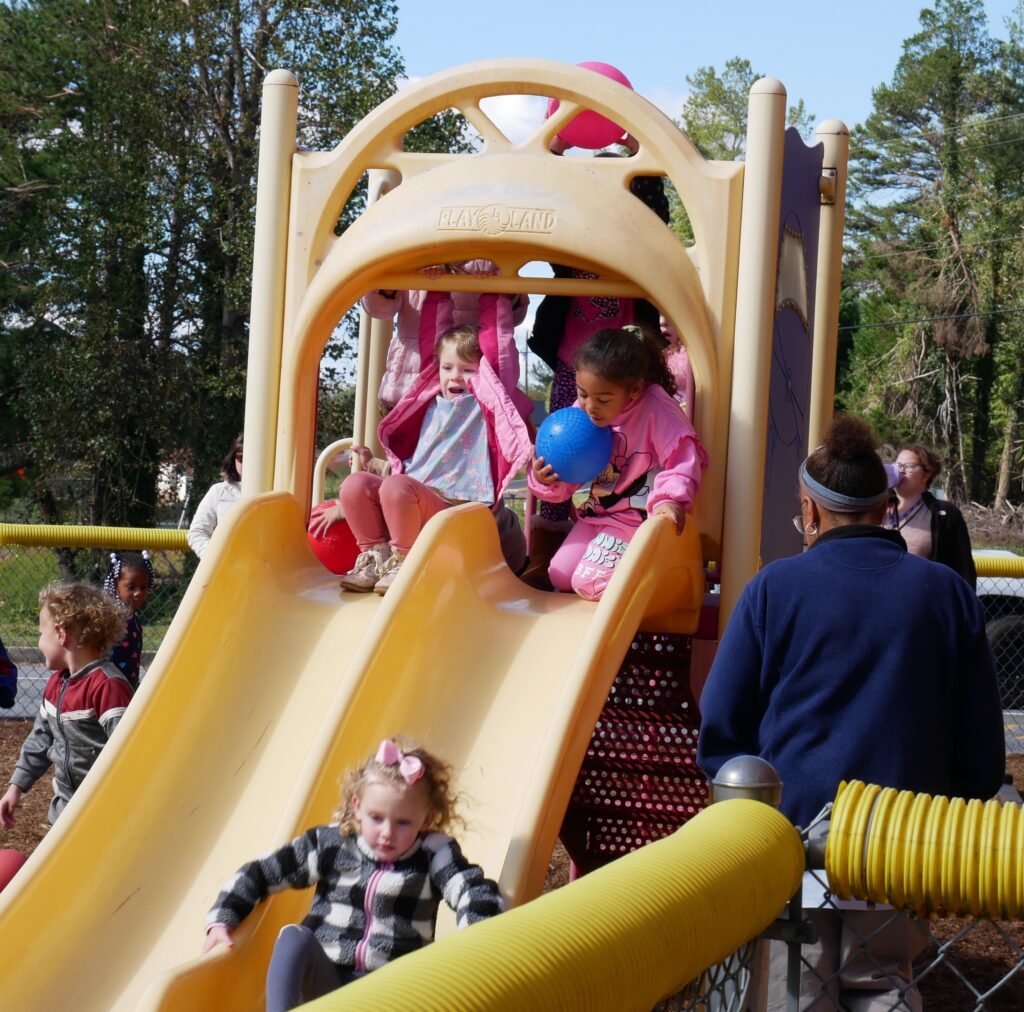
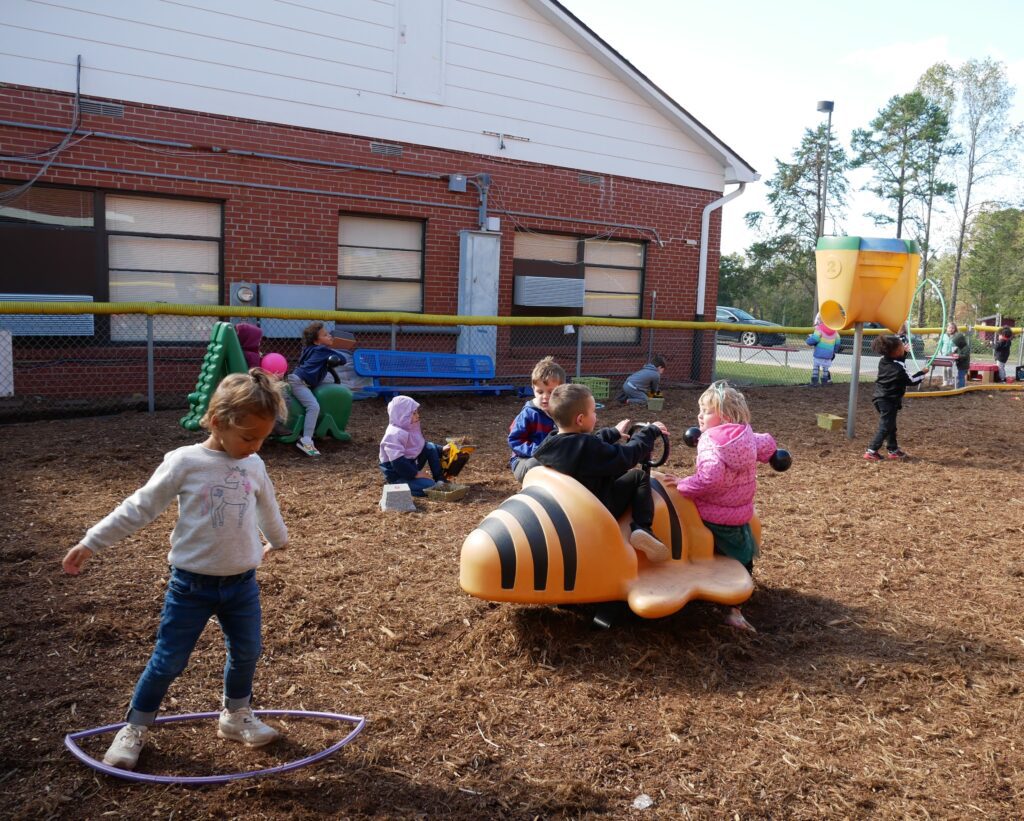
This is why the model of Smart Start exists, with 75 local partnerships across the state, Smith said.
“Smart Start is a convener,” Smith said. “We bring people together.”
Children having access to early care and learning is vital for recovery from a tragedy like Helene, Grady and Smith said, and it’s the responsibility of the entire community.
“Doctors and nurses and EMS and all that could not go to work if they didn’t have child care, so we’re kind of the backbone of the essential workers,” Smith said.
‘Everybody just pitching in together’
Reopening within schools has given the children and staff of Quaker Meadows a sliver of stability.
At an open house at Salem Elementary on Tuesday, children reunited with their friends while parents filled out forms that had been lost in the flooding and learned about day-to-day operations at the new location.
Dillon Lingafelt said that during the storm, falling sheetrock woke his 4-year-old son Hank as a tree crashed into their roof. He was thankful Hank could get back into his routine after adjusting to the start of preschool only a few weeks before Helene.
“Every day, he was like, ‘I had the best day,’ and then all of a sudden, he’s back home,” Lingafelt said. “You can tell a difference in not going to school, with schedule and everything.”

For mother Tiairra Houston, the center being closed meant her 3-year-old son was not receiving speech therapies he needs.
“He’s been missing out,” Houston said. “I’m just glad that they found a building and that they’re open. He’s been dying to come back to school.”
Teachers from Quaker Ridge worked tirelessly to clean the new site and set up classrooms with donated furniture and materials from several companies and nonprofits. School staff have been overwhelmingly supportive, coordinating donations and welcoming them to the building, said Cheryl Leonhardt, director of the program.
“It’s really everybody just pitching in together,” Leonhardt said.
Facility repairs probably will take six to nine months, Ashley said. During the open house, a local church committed to housing the program’s classrooms for infants and toddlers in the meantime.
One of the only remnants from the center in the classrooms at Salem is pre-K teacher Kelly Sylvester’s fish tank, with some storm survivors — five fish, a frog, and two snails. A worker cleaning the building found the tank among the ruins.
Sylvester was shocked. She said she is grateful to work for an organization that immediately supported staff and to live in a community that donated space.
“We are really lucky to get back to the classroom,” Sylvester said.

A sprint to reopen
As about 60 children attend the classrooms in Oak Hill, Creative Beginnings is focusing on reopening its original facility to serve all ages as quickly as possible.
As a standalone center that was already financially strapped, it will need outside resources to do that, said owner Jan Wyatt and director Denise Hudson.
“We’re just in survival mode, but we’re working every day to get out of that survival mode,” Wyatt said. “We desperately are going to have to have some help.”
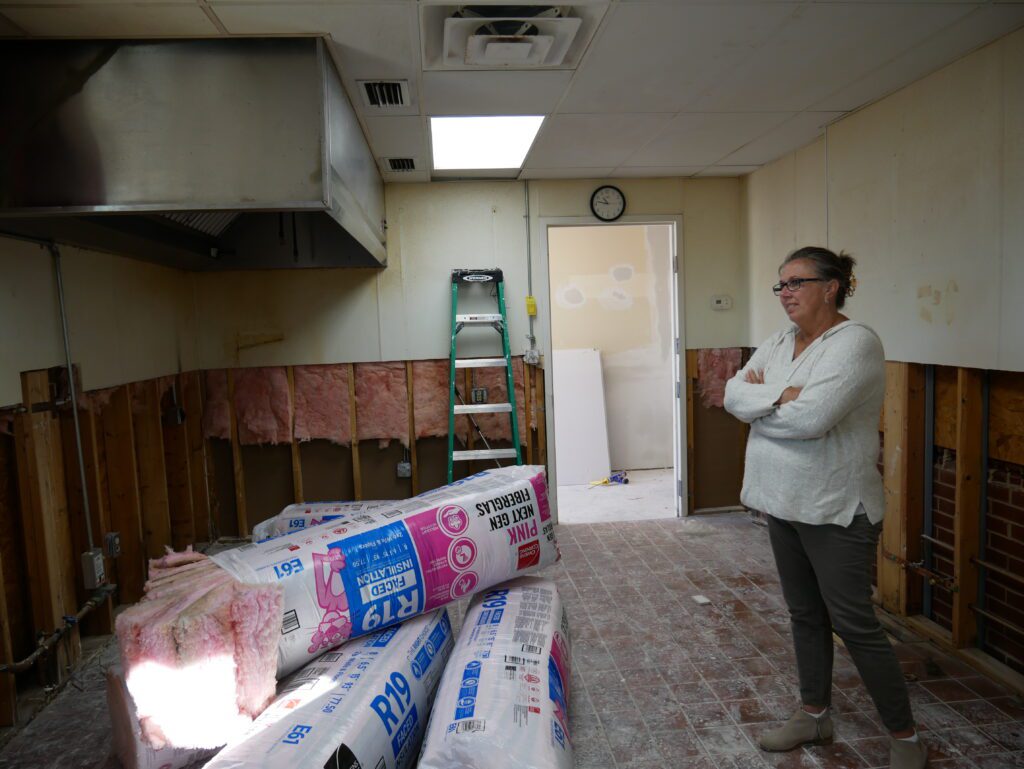
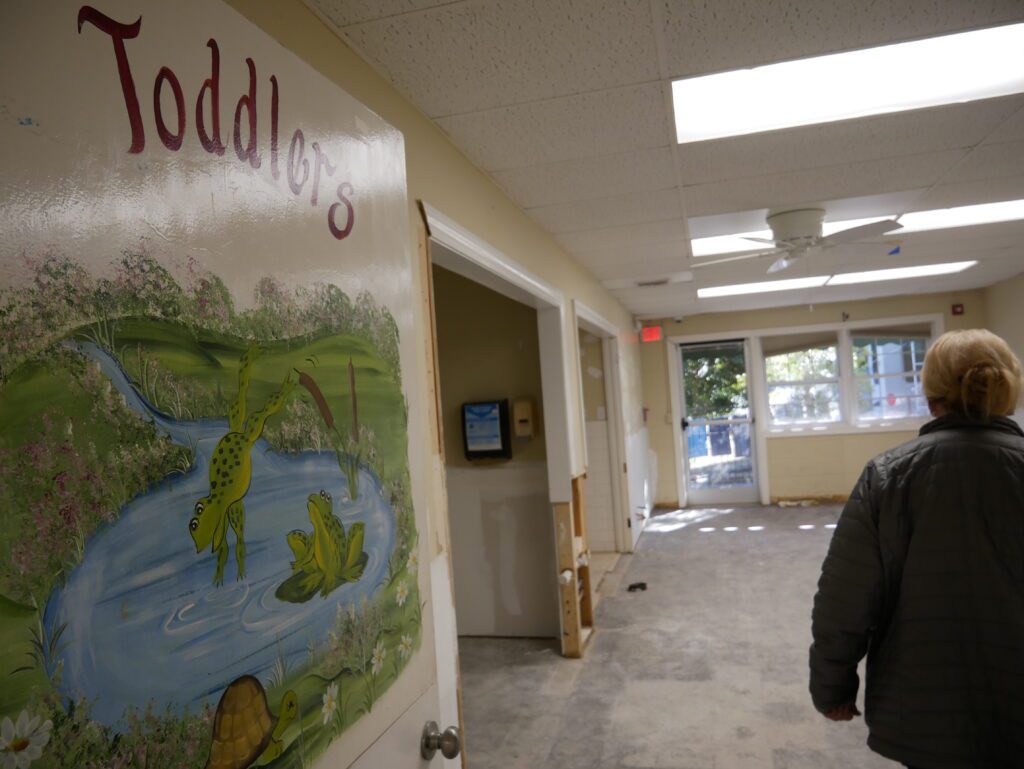
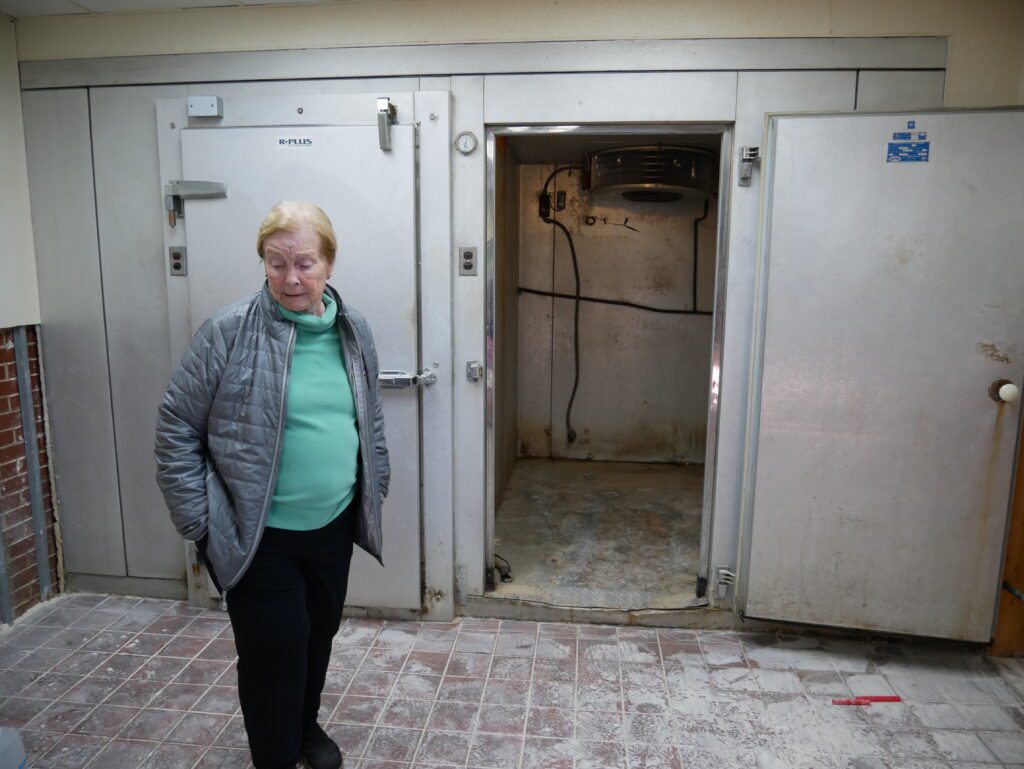
Being able to pay and retain teachers is a top priority, Wyatt and Hudson said. It’s a necessity during the crisis and also to reopen, which Wyatt is hoping to do in six to eight weeks.
“Number one, they need a job,” Wyatt said. “And number two, if we lose those teachers, then we’re not gonna be able to open back up.”
At Oak Hill, four teachers from Creative Beginnings have been assigned to each classroom, which usually would have only two. The cook for the child care program welcomes children each morning to provide a familiar face in the parking lot. Teachers walk children to their classrooms.
And at the child care center, more staff are meeting every day to help with cleaning, salvaging equipment, and contacting families.
“We’re all facing our own crisis, and we’re here fighting a crisis,” said Powell, the longtime teacher at the program.
‘This is our home’
Wyatt said she is focused on reopening the first half of the building, which houses the classrooms for infants and toddlers. That age group is harder to relocate because of equipment and building needs.
Teachers have communicated with families who are making other arrangements in the meantime — staying home from work, relying on family members, or finding alternate programs.
“Infants and toddlers were the hardest hit by this,” Wyatt said. “There was not that much baby care in Burke County (before the storm).”
Powell said she’s heard from many families who are planning to return when the program reopens, even if they have to find other arrangements in the meantime.
“Regardless of what we have to do during this time, we’re coming back,” she said. “This is our home.”
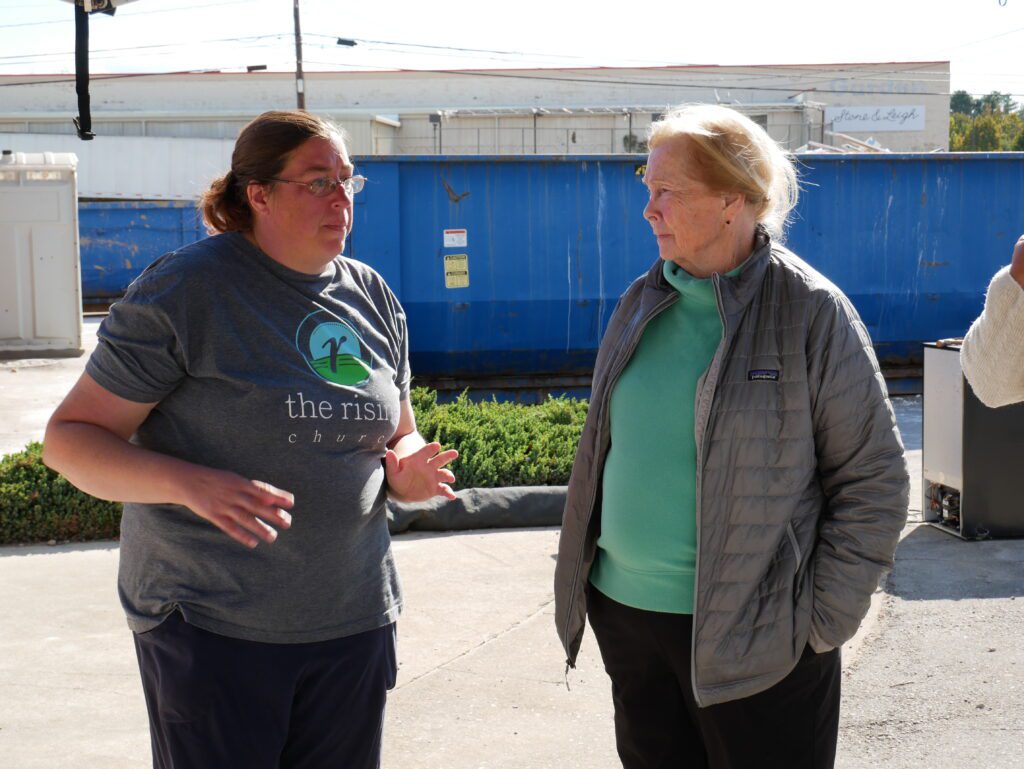
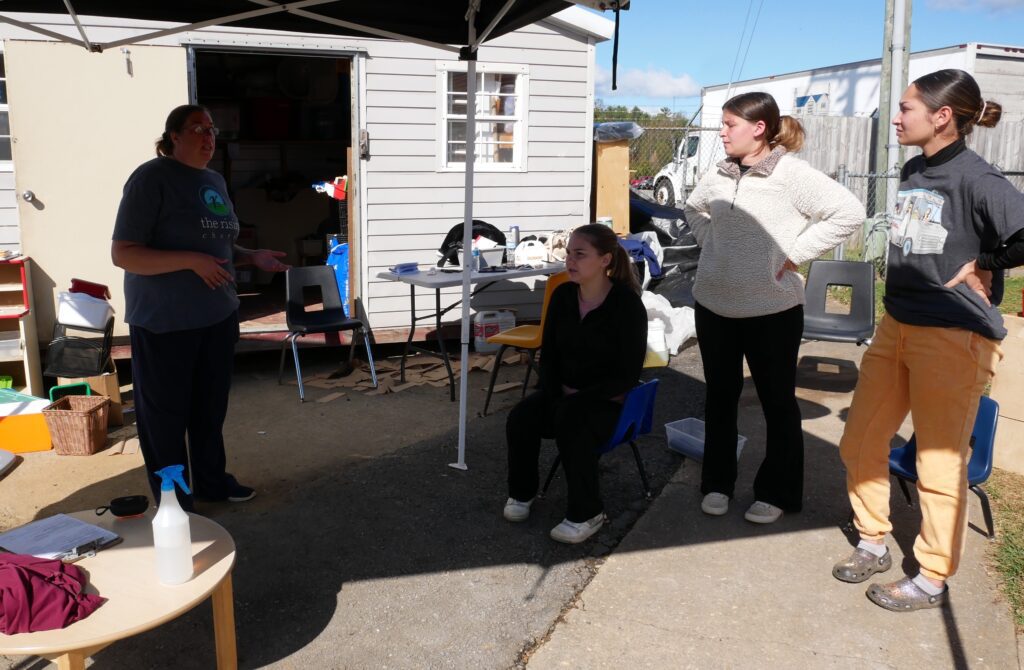
In the last 19 years, Creative Beginnings has closed for three days due to weather, said Hudson, director of the program. One of those days was Friday, Sept. 27.
Hudson checked on the building on Friday, and “everything was great,” she said. The next day, she couldn’t make it to the building because of closed roads due to debris and flooding. She asked the police officer directing traffic whether he had seen the center. He told her it was flooded.
On Sunday, Hudson made it to the program.
“It was very overwhelming,” she said. “My first thought was, 199 children. What are they gonna do for child care?”
A construction crew is working seven days a week to gut and rebuild the facility.
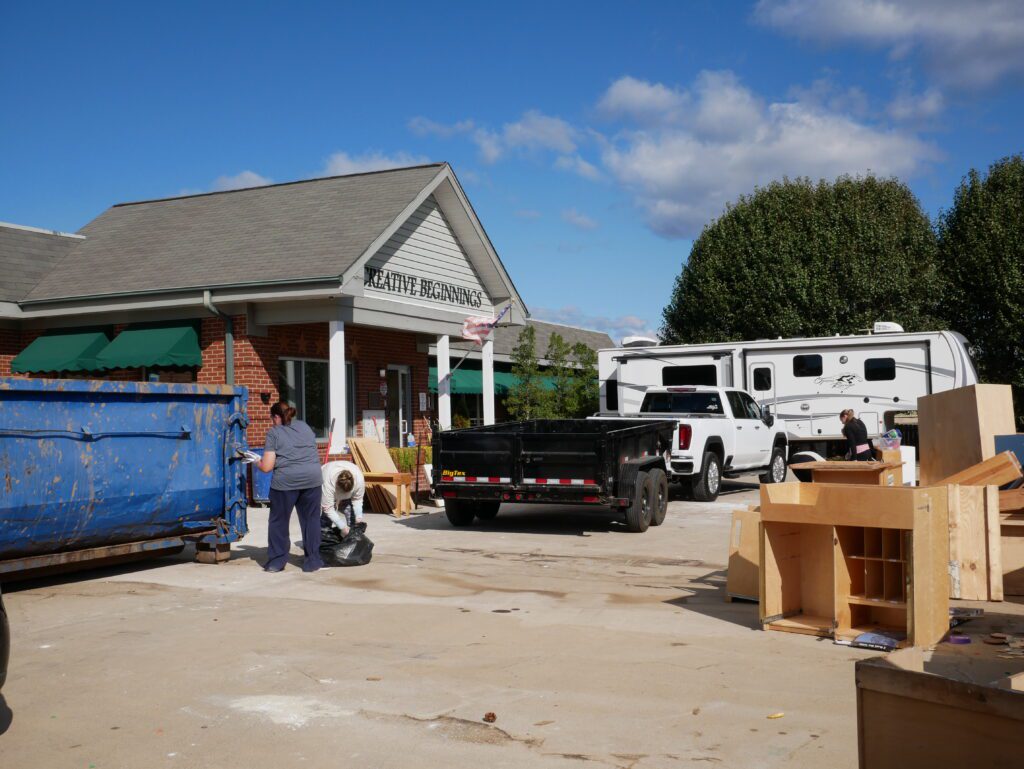
Wyatt has applied for a low-interest loan from the Small Business Administration, she said. But she said outside funding is needed, particularly for private for-profit providers ineligible for grants and FEMA assistance.
And although she has been focused on her business, which has been open for 25 years, Wyatt is also navigating the flooding of her own home.
Powell, standing next to Wyatt, said she is more grateful than ever for the family at Creative Beginnings.
“It’s been heartbreaking, but heartwarming also, because it’s brought us together and definitely showed us how strong we are, showed us how strong she is.”



